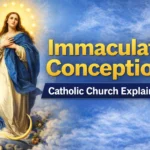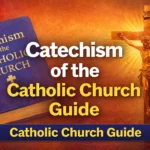1. Introduction — The Age of Moral Confusion
We live in an age of extraordinary progress but alarming emptiness. Humanity can now explore space, harness artificial intelligence, and access endless information in seconds — yet something sacred is fading. Compassion, truth, and integrity are quietly vanishing.
Civilizations, the Qur’an reminds us, do not collapse overnight; they erode silently from within. History shows that nations fall not when they lose wealth or power, but when they lose their moral soul.
“Indeed, Allah does not change the condition of a people until they change what is in themselves.”
— Surah Ar-Ra’d (13:11)
Our age confuses knowledge with wisdom, pleasure with happiness, and freedom with moral chaos. Humanity’s deepest crisis today is not economic or political — it is spiritual and psychological. The disease is invisible but deadly: the erosion of conscience.
2. The Qur’anic Pattern of Decline
a) Prosperity, Arrogance, and Collapse
“And when We intend to destroy a town, We command its affluent, but they defiantly disobey therein; so the word comes into effect upon it, and We destroy it completely.”
— Surah Al-Isra (17:16)
Moral decline often begins with comfort. Prosperity breeds arrogance, arrogance breeds disobedience, and disobedience leads to downfall. When the powerful become corrupt, their influence spreads through society — from fashion to politics — until moral restraint is seen as weakness.
b) Fasad: Corruption Across Land and Sea
“Corruption has appeared on land and sea because of what the hands of people have earned, so that He may let them taste part of what they have done, that perhaps they will return.”
— Surah Ar-Rum (30:41)
The Qur’anic term fasad means more than political disorder; it includes moral, social, and spiritual corruption. It’s the decay that begins when truth is manipulated, when lies are rewarded, and when greed is justified as success. Corruption outside reflects corruption within — for when hearts decay, civilizations follow.
c) Zulm: The Heart of Civilizational Injustice
The Qur’an identifies zulm — injustice and moral wrongdoing — as the defining cause of a nation’s fall. It is not only about cruelty toward others but also about placing things where they don’t belong — perverting justice, exploiting the weak, and corrupting truth.
“We did not wrong them; rather, they wronged themselves.” — Surah Hud (11:101)
“My covenant does not include the wrongdoers (zalimīn).” — Surah Al-Baqarah (2:124)
“O you who believe! Be persistently standing firm in justice, witnesses for Allah…” — Surah An-Nisa (4:135)
A nation can be rich, powerful, and educated — yet doomed if zulm becomes normal. When deception replaces honesty, and the oppressor is admired for his power, decline becomes inevitable. The Qur’an makes it clear: no covenant of success stands with injustice.
d) Nafs and Hawa: When Desire Becomes the God
“Have you seen the one who takes his desires as his God?” — Surah Al-Jathiyah (45:23)
When the self (nafs) replaces conscience, and desire (hawa) replaces moral principle, a society loses its anchor. What was once shameful becomes entertainment; what was once sacred becomes negotiable. This is the psychological heart of moral collapse — when pleasure, not purpose, defines life.
Note: In Qur’anic psychology, Hawa (الهوى) means more than desire — it’s the downward pull of the soul, the voice that urges indulgence over discipline. The word’s root (ه و ى) literally means “to fall,” symbolizing how following hawa leads one away from guidance (hudā) and into moral descent.
3. Psychological Dimensions of Moral Decay
Modern psychology helps decode the same truths the Qur’an revealed 1,400 years ago — that the corruption of the outer world begins in the human mind and heart.
a) Hedonism and the Dopamine Trap
Freud’s pleasure principle explains humanity’s instinct for instant gratification — and today’s digital economy has mastered it. Every notification, like, and purchase triggers dopamine, creating a loop of craving. This is hedonism disguised as lifestyle.
The Qur’an warns:
“And do not follow desire, for it will mislead you from the path of Allah.” — Surah Sad (38:26)
This endless stimulation leaves the soul restless and unsatisfied. In chasing constant pleasure, people lose the ability to experience real peace.
b) The Crisis of Meaning
Viktor Frankl, a Holocaust survivor and psychiatrist, described modern suffering as an existential vacuum — a life without purpose. The Qur’an confronts this emptiness directly:
“Did you think We created you without purpose and that you would not be returned to Us?” — Surah Al-Mu’minun (23:115)
Without belief in accountability to God, morality becomes relative. When the afterlife is dismissed as myth, good and evil turn into matters of preference. This is not enlightenment — it is moral disorientation.
c) Desensitization and Emotional Numbness
Our constant exposure to vulgarity, violence, and deceit numbs moral sensitivity. Psychology calls this desensitization; the Qur’an calls it the sealing of the heart:
“Allah has set a seal upon their hearts and upon their hearing, and over their vision is a veil.” — Surah Al-Baqarah (2:7)
A heart that no longer feels guilt or empathy is spiritually paralyzed. When societies stop blushing at sin, their downfall is near.
4. Visible Symptoms of a Collapsing Society
•Family Breakdown: Homes lose warmth and stability as relationships turn transactional.
•Dishonesty as Normal: Lies are rebranded as “strategy,” and truth as “opinion.”
•Systemic Zulm: Power bends laws, and justice becomes selective.
•Moral Relativism: The line between right and wrong dissolves into “personal choice.”
The Prophet Muhammad ﷺ warned:
“When honesty is lost, then wait for the Hour.” — Sahih al-Bukhari
5. The Qur’anic Roadmap to Moral Revival
a) Taqwa: Reconnecting with the Divine
All moral healing begins from within. Taqwa — consciousness of God — gives man a compass that points to truth even in darkness.
“O you who believe, if you fear Allah, He will grant you a criterion (to distinguish right from wrong).” — Surah Al-Anfal (8:29)
A person aware of God’s presence naturally avoids deception, cruelty, and pride — not out of fear of law, but out of reverence for Truth.
b) Tazkiyah: Purification Before Progress
True progress begins with purification (tazkiyah). The Qur’an declares:
“He has succeeded who purifies it, and he has failed who corrupts it.” — Surah Ash-Shams (91:9–10)
Without tazkiyah, every reform becomes shallow — systems will always mirror the corruption of the people who run them. Spiritual discipline, humility, and daily reflection are the unseen foundations of sustainable reform.
c) Justice as Worship — Undoing Zulm
Justice in Islam is not a political slogan — it is an act of worship.
“Indeed, Allah commands justice, excellence, and giving to relatives, and forbids immorality, wrongdoing, and transgression.” — Surah An-Nahl (16:90)
Practical implications today:
•Build transparent institutions where no one is above the law.
•Protect the weak, the poor, and the whistleblower.
•Reward integrity as much as innovation.
•Apply justice impartially — even against one’s own interest. (Surah An-Nisa 4:135)
When justice thrives, barakah (blessing) returns:
“If the people of the towns had believed and feared Allah, We would have opened for them blessings from the heavens and the earth…” — Surah Al-A‘raf (7:96)
d) Moral Communities as Beacons of Light
The Prophet ﷺ began reform not by forming empires but by building communities of conscience — small groups bound by sincerity, truth, and service. In an age of digital noise and moral fatigue, such circles — families, mosques, and honest workplaces — are islands of light.
e) Attention Discipline in a Distracted World
Our attention is the new battlefield. What we consume shapes our soul.
•Avoid toxic media and gossip-driven content.
•Replace endless scrolling with reflection, service, and prayer.
•Teach youth digital adab — verify before sharing, and consume knowledge that benefits.
6. Conclusion — The Return of Conscience
Moral collapse is not destiny; it is a choice. The Qur’an links downfall to neglect, and renewal to remembrance. When societies replace justice with zulm, and truth with desire, they walk toward ruin.
“Say, ‘The truth has come, and falsehood has vanished; indeed, falsehood is bound to vanish.’” — Surah Al-Isra (17:81)
Our world doesn’t need more inventions; it needs more conscience. Healing begins when individuals reconnect with God, purify their inner world, and stand for justice even when alone.
Civilizations rise again when hearts awaken — for the real revolution begins within.










